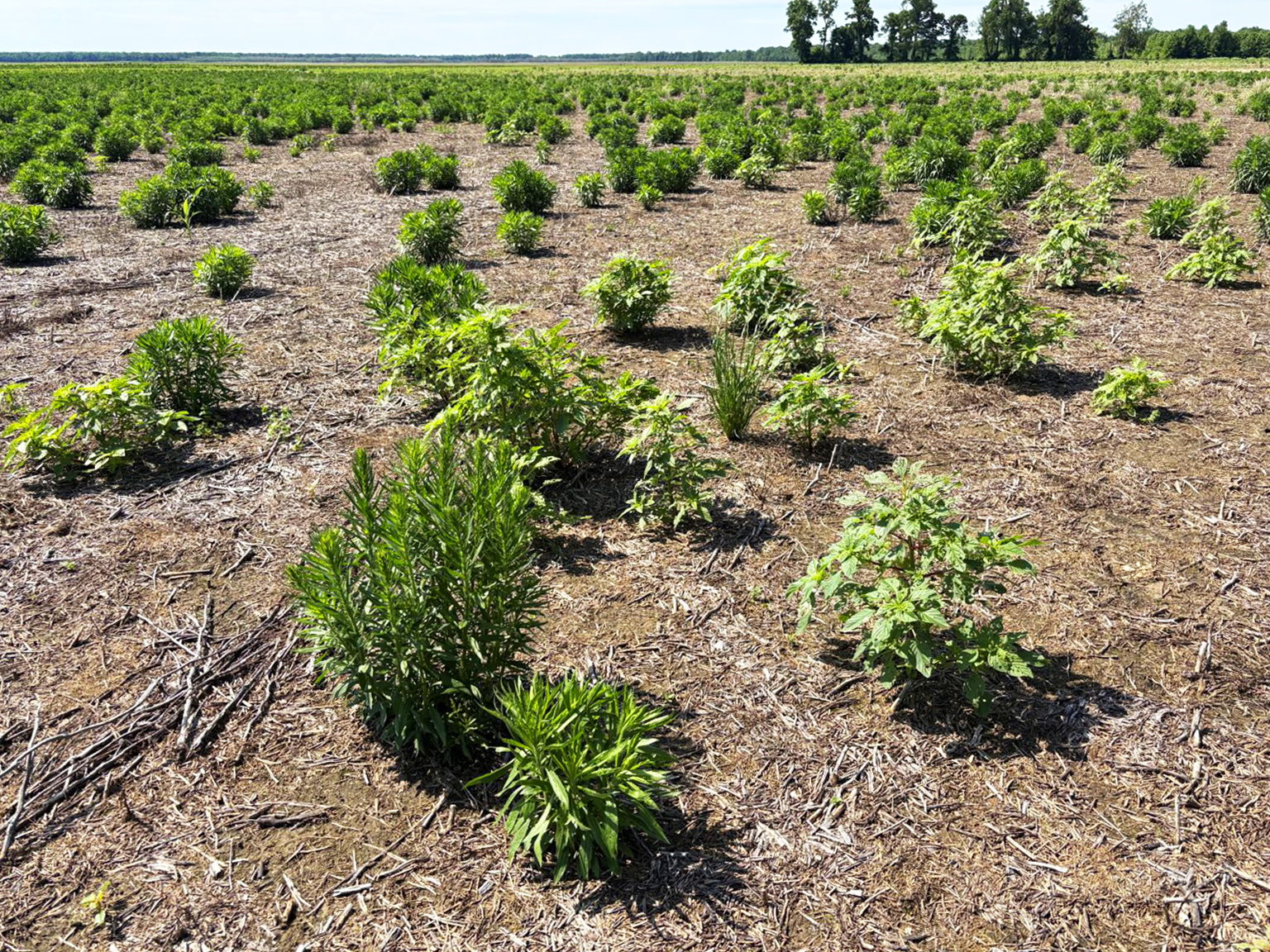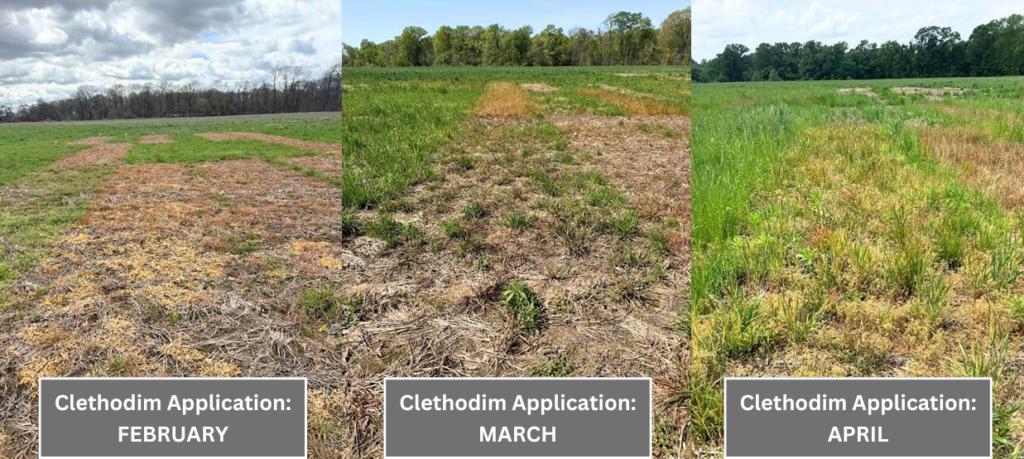
UTIA Offers Weed Management Solutions for 2025
JACKSON, Tenn. – The 2025 growing season is in full swing, and weed control remains a top concern for row crop producers. Experts at the University of Tennessee Institute of Agriculture are continuing to provide research-based recommendations to help farmers manage infestations and stay ahead of increasing herbicide resistance.
“When people think of weed control, the first thing that comes to mind is often our struggle with Palmer amaranth, better known as pigweed,” says Larry Steckel, UT Extension weed specialist. “Although some Palmer amaranth populations have evolved resistance to dicamba and 2,4-D, Liberty frequently provides good control. However, spring rains have caused the weed to get out of hand, with infestations of Italian ryegrass and horseweed adding to the challenge.”
If Palmer amaranth is already well-established in fields, Steckel says tillage before planting may be the best solution, as late-spring burndown herbicides such as paraquat will not eliminate large plants. If an area has a high risk of soil erosion, a tank mix of Liberty plus clethodim followed by paraquat a couple of days later is the preferred alternative. In instances where soybeans may emerge before the follow-up paraquat application, a tank mix of Liberty plus Enlist One is recommended instead.
For Italian ryegrass, early management is critical, with herbicide applications in February proving significantly more effective than those in March or April. For both initial burndown and control throughout the growing season, clethodim or a glyphosate and clethodim tank mix are reliable options, as glyphosate alone only suppresses the weed. However, Italian ryegrass may be showing signs of herbicide resistance, jeopardizing these essential control strategies.
“We are receiving calls about Italian ryegrass escaping multiple clethodim applications,” says Hayden Love, graduate research assistant with Steckel in the UT Herbert College of Agriculture. “We’ll be conducting surveys to determine if resistance has developed in Tennessee as it has in Louisiana and Mississippi, but we must begin next year’s applications early to improve long-term management.”

Steckel and his team also predict that infestations of horseweed, commonly known as marestail, could be the worst since 2017, primarily due to changing recommendations for burndown applications. Normally controlled with dicamba, tank mixing this herbicide with glyphosate or clethodim, used to manage Italian ryegrass, will actually reduce the effectiveness of all three. With less dicamba being used in fields, horseweed had the opportunity to grow unchecked.
“We’re seeing horseweed more than three feet tall, and it’s still early in the season,” says Steckel. “For most soybean or cotton fields, Liberty will provide control when applied on a very warm day or you can tank mix with Enlist One in cooler conditions not optimal for Liberty alone. For intense infestations, I recommend Sharpen or the premix of Sharpen and Outlook known as Verdict. In corn, use any premix that contains an HPPD-inhibiting herbicide such as Armezon, Callisto or Laudis tank mixed with atrazine.”
You can learn additional control strategies during the annual Weed Tour on June 18 at 8:30 a.m. at the West Tennessee AgResearch and Education Center, located at 605 Airways Boulevard in Jackson, Tennessee. For year-round weed management information, please visit utcrops.com or contact your local county Extension office.
The University of Tennessee Institute of Agriculture is comprised of the Herbert College of Agriculture, UT College of Veterinary Medicine, UT AgResearch and UT Extension. Through its land-grant mission of teaching, research and outreach, the Institute touches lives and provides Real. Life. Solutions. to Tennesseans and beyond. utia.tennessee.edu.